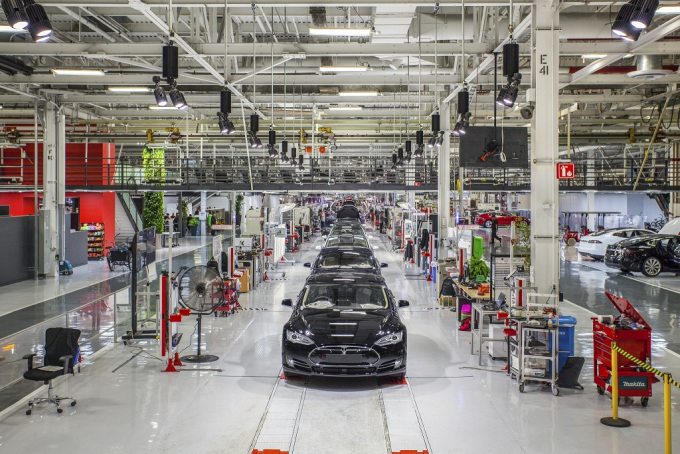
The new marketplace for industries like manufacturing, energy, gas and oil, and construction is a far cry from that in decades past. The perfect storm of problems has been brewing, as novel challenges cut into revenue and force corporations to scramble to find fresh opportunities. Obstacles to growth come in many forms. For example, the Bureau of Labor Statistics noted that there has been a gradual slide in worker productivity, not over just the last few quarters, but over the last decade. However, just as some industries are struggling, there is little doubt that the tech sector is going strong—and that it is shaking up other verticals to create value and opportunities for expansion and growth. While it is not likely that a single solution can bring about significant change in the industrial sector, the appropriate application of advanced technologies like the Internet of Things (IoT), data analytics, machine learning and robotics can result in a greater optimization of business workflows and processes, enhanced safety, improved research and development, and the creation of new revenue streams.
Increasing Pressure, Novel Problems
IoT is a collection of sensors and/or devices that are connected to the Internet to provide granular data and insights. These IoT-driven business insights can be used for a broad range of applications, some of which may be able to address the many issues confronting business in the new, technology-driven environment. Certain challenges, such as political risk and increased regulation, are recurrent. Governments have always monitored businesses, but climate change has sparked a strong increase in the number of regulations, with many more expected in the coming years. While all industries need to effectively manage political and regulatory risks and find ways to address new rules, each industry is faced with unique obstacles that can be mitigated with the right approach.

American manufacturing has experienced a slow downward spiral as more companies are outsourcing work to other countries, but there are local issues, as well. The rising costs due to workers’ compensation claims are curbing growth. One possible use of industrial IoT might be to use sensors to indicate when equipment or a specific part may fail; this type of information would not only help prevent accidents, but also ensure that all equipment is kept in good working order. Robots have become integral to the optimal performance of factories, since they can perform tedious tasks or dangerous operations that may pose a threat to employees. Robots can also take advantage of the data from industrial IoT to become more efficient. Employees with IoT-enhanced eyewear can get help immediately from a knowledge repository, managers or mentors via augmented reality (AR) videoconferencing to quickly rectify issues in different parts of the factory, all the while remaining hands-free. Inventory discrepancies are another headache, but RFIDs can make keeping track of products simpler and provide real-time data as to a product’s exact location.

The energy sector is no stranger to challenges. Global population estimates of about 7.4 billion people point to a staggering demand for energy resources. As standards of living rise, these demands will also skyrocket. “Clean” energy that can support all of these demands is necessary in order to check the volatile changes in the environment. However, smart grids are providing energy providers incredible insights and control—but this is only the beginning of the possibilities. Security is a key issue for the energy sector, and preventing the disruption of service is an important goal that can be supported by industrial Internet of Things.

The oil and gas industry has been relatively slow to embrace newer technologies. The industry in general has been plagued by political unrest, evolving opinions on climate issues, and fluctuations in demand. Oil companies are being especially stretched by global stressors. With a barrel of crude under $45, oil companies will need to find more efficient methods for finding and utilizing wells and developing new streams of revenue in order to stay viable. The industry is also struggling with its image in the face of safety issues, such as that experienced during the Deepwater Horizon incident or the North Battleford Pipeline spill. However, industrial Internet of Things may be the answer to the industry’s challenges. For example, a recent study by Intel showed that data analytics can improve production from wells by 30%.

It’s no secret that falling demand is putting the kibosh on construction companies, which is having a ripple effect throughout the economy. Although there are some signs of life, a recent paper by PWC noted that the industry is in some trouble: the downturn in the Chinese economy, the generalized global slump in demand, and increased competition are all contributing to the industry’s agony. However, industrial IoT can not only decrease the impact from these struggles, but it may be able to revitalize a company’s bottom line. For example, IoT sensors can be utilized for predictive maintenance, and they can also track the actual usage of a machine or tool. With increased insights into machine and tool usage, companies can find more efficient methods for deploying their assets.
The Future of Industrial IoT
IoT can enable businesses to see their challenges and opportunities in a new way. Gartner predicts that more than 50% of all new business processes and systems will rely on IoT. Every industry can benefit from implementing advanced technologies to solve problems or highlight new avenues of growth. Industrial IoT offers businesses a wealth of insights from the increased amount of data paired with analytics. Real-time information combined with machine learning can help companies stave off accidents, fix problems before they become an issue, increase efficiency, and even open up new areas of revenue (the Industrial IoT Consortium has a wealth of case studies for perusal). Your company can capitalize on the opportunities offered by IoT by partnering with a leader in industrial IoT. The experienced team of experts at Amyx+ has been assisting clients with their industrial IoT approaches, allowing them to successfully use technology to solve problems and uncover opportunities. Whether you have an idea of how IoT can help your company or you only have a list of challenges, Amyx+ can assist with every stage of industrial IoT implementation process, from brainstorming the best possible solutions to the prototyping and the actual launch of the solution. The team at Amyx+ can even augment your existing R&D team, providing insights into the future of the market with their strong understanding of cutting-edge technologies and trends. Contact the Amyx+ team for targeted assistance on how your company can benefit from data-driven solutions from IoT.


















